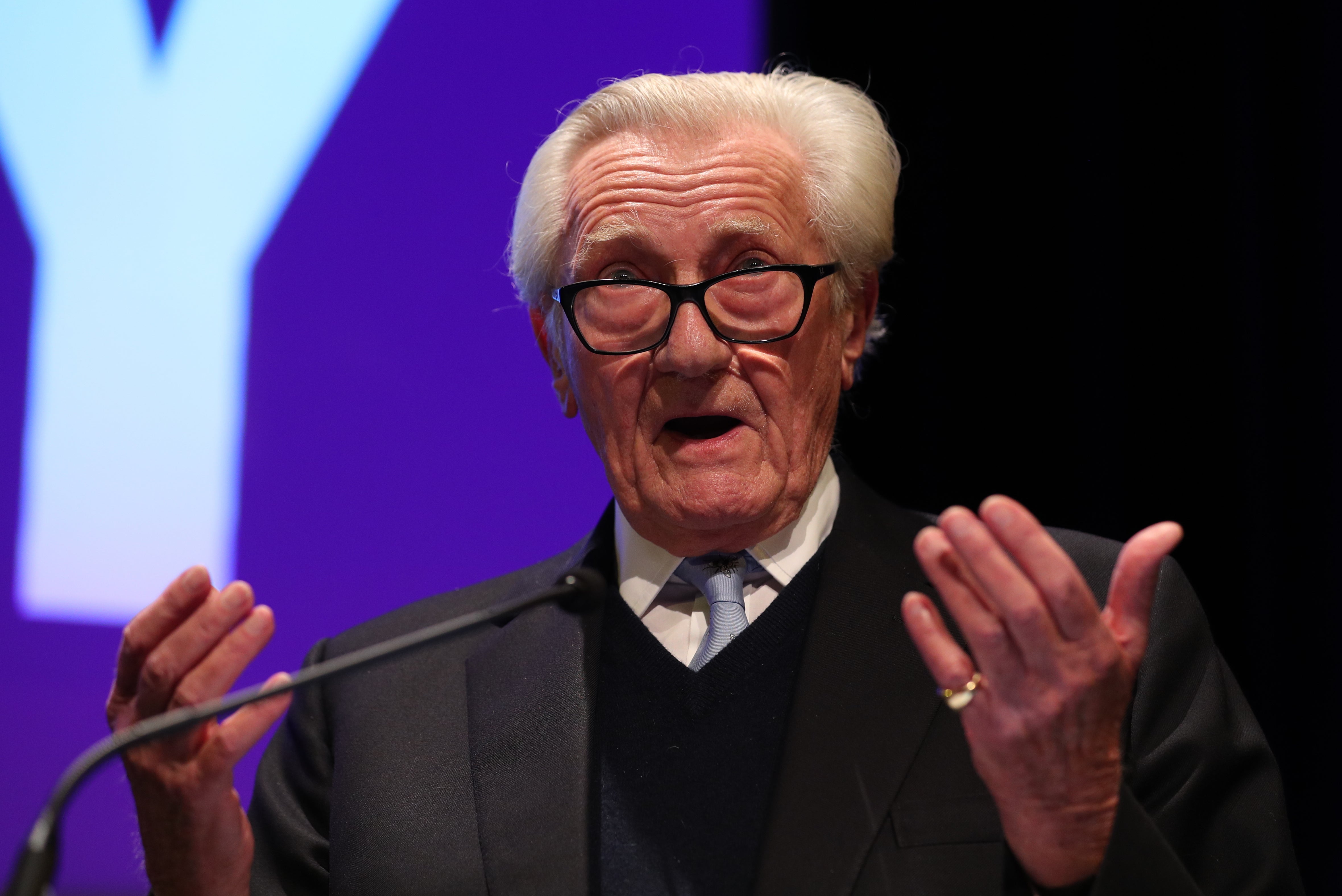History, like Lord Heseltine, will judge Boris Johnson harshly
Editorial: The Conservative Party grandee is right to say that a former premier has never been so ‘nakedly and painfully on the rack’ as Johnson is now

Given how far Boris Johnson’s reputation has already sunk before he’s even turned 60, it seems unlikely that any pronouncements he makes when he gets to the age of 90 will be taken very seriously. Happily, that does not apply to Michael Heseltine, still vigorous, still full of political nous, and still speaking out about the state of the nation. And what he has to say is actually worth listening to.
Lord Heseltine served as a minister under Edward Heath, Margaret Thatcher and, including a time as deputy prime minister, under John Major – so he understands high politics and power, and the changing fortunes that a career in public life brings.
He is thus well qualified to judge the record of the past few disastrous years, and the man, Mr Johnson, who has done so much to shape them.
Lord Heseltine is right that never before has a former premier been so “nakedly and painfully on the rack” as Mr Johnson is now. He is the subject of a renewed police investigation into his behaviour during the pandemic; there is the Commons privileges committee investigation into whether he misled parliament; and he is the central figure in the public inquiry into the Covid response.
Soon, Mr Johnson could be sanctioned by the committee, forced into a by-election and effectively expelled from the Commons by his fellow MPs and constituents. Quite conceivably he, and his associates and family members, will be subject to fixed penalty notices in the near future.
It is quite the fall from grace. In 2016, Mr Johnson did more than anyone to secure the Leave vote in the EU referendum, a cynical positioning exercise he didn’t even expect to result in a vote for Brexit.
But he won a shock victory. In 2019, he manoeuvred Theresa May out of the job and a few months later assembled the most successful national coalition of voters in recent history.
In the first and (surely) last general election Mr Johnson led his party into, he secured the highest share of the vote since 1979, and the biggest parliamentary majority since 1987.
The Labour Party suffered its worst defeat since 1935, and was written off. True, much of that victory was based on Mr Johnson's wilful distortions, and the electorate’s aversion to Jeremy Corbyn. But for many it seemed the dramatic culmination of an electoral realignment that had been in the making for years, if not decades. Mr Johnson, an energetic campaigner, could take his share of the credit.
Yet contrast that triumphant, hubristic mood with now. Mr Johnson’s successor, Rishi Sunak, and the Conservatives face a general election next year. The voters believe that Brexit was a mistake.
How has it come to this? The Johnson paradox is that he did indeed help to reinvigorate his party after the traumas of the Brexit referendum, albeit often using brutal means and undeliverable, impossibilist promises. But he also created the conditions for the destruction of his party.
In his heyday, before Brexit became an indisputable failure, Mr Johnson once described himself as “a Brexity Hezza”, recalling Lord Heseltine’s taste for industrial strategy, and his famous nickname. The warmth is not reciprocated.
Lord Heseltine correctly identifies Mr Johnson as the cause of the coming denouement, and an equally dramatic and imminent realignment of the political centre towards parties with progressive values: “This is all part of the terrible historic mistake the Tories made, which they need to purge and alter: they must put an end to Brexit. This political car crash that is now engulfing Boris is damaging and divisive to our party; we know that feuding parties do not fight elections well. They invariably lose.”
The shortcomings in Mr Johnson’s personal behaviour during the lockdowns and his disgraceful failure to swiftly punish the wrongdoings of others, such as in the Pincher scandal, were indeed part of the reason for his downfall, and the precipitous decline of the Conservatives.
So too, in fairness, were the policies followed by Liz Truss during her brief hold on power (and Mr Johnson is culpable even there in building her up as a rival to Mr Sunak).
However, the overwhelming factor is indeed the manifest and immensely costly failures of Brexit, the project that set Mr Johnson on the path to No 10 and gave his party a fleeting and illusory spell of hegemony.
Brexit will always be associated with Mr Johnson, and vice versa, in the way that the Iraq war has shackled itself to Tony Blair’s reputation, and “sleaze” to John Major’s. It is why, whatever his vocal fans try to claim, his party should give up on any plan to “bring back Boris”. He, like Brexit, has been a flop.






Join our commenting forum
Join thought-provoking conversations, follow other Independent readers and see their replies
Comments